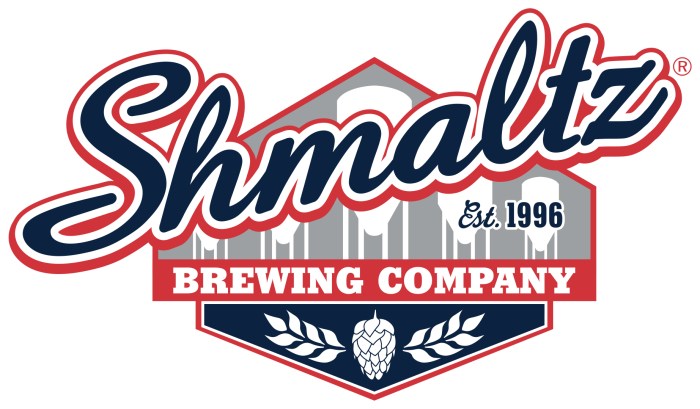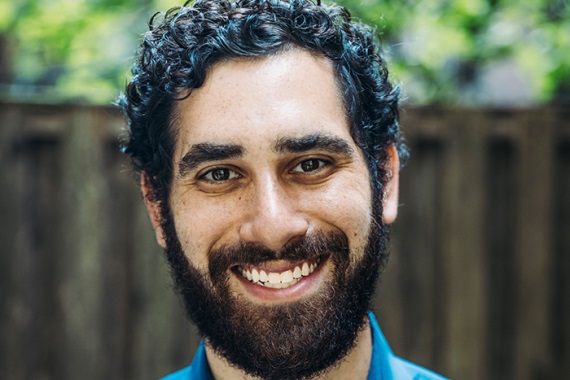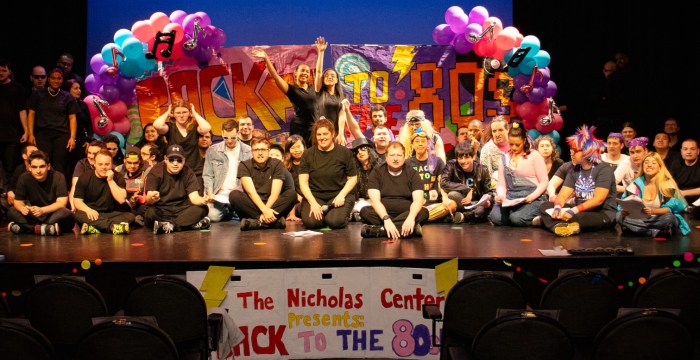Jesse Epstein is not your typical rabbinical student.
At 28, the Port Washington native is studying for ordination at Hebrew Union College–Jewish Institute of Religion and simultaneously leading the revival of a beloved Jewish-owned craft beer company—all in service of expanding what the Jewish community can look like.
Epstein, who grew up attending The Community Synagogue of Port Washington and served as president of its youth group, is one of 12 participants in the Union for Reform Judaism’s new Jewish Community Cultivators Cohort. The initiative supports leaders exploring Jewish life beyond traditional synagogue walls.
In Epstein’s case, that exploration comes with hops, barley and bold ideas.
“I purchased Shmaltz Brewing Company in August 2022,” Epstein said. “It had run for 25 years upstate in the Capital region and was really a pioneer in the craft beer movement. When it ended in 2021, I saw a real opportunity to bring it back—not just for nostalgia, but as a platform to build Jewish community in a new way.”
Founded in 1996, Shmaltz Brewing became known for its clever branding and Jewish-themed brews like He’Brew, Messiah Nut Brown Ale and Genesis Ale. Epstein, who calls himself both a fan of craft beer and a lover of Judaism, saw the defunct company as fertile ground for innovation.

“I asked the founder [Jeremy Cowan] if I could intern as a rabbi at his beer company,” Epstein said, laughing. “He said no to the internship, but by the end of our lunch, Jeremy had convinced me to buy it.”
With backing from the Atra Fellowship for Rabbinic Entrepreneurship and the 92nd Street Y Jewish Innovation Fellowship, Epstein relaunched Shmaltz with a community-oriented mission.
“There’s often this idea that nonprofit equals good and business equals bad,” he said. “I want to disrupt that. Ethical business practices are deeply rooted in Jewish tradition and I even wrote my rabbinic thesis on traditional Jewish business ethics.”
Now based in New York City—but soon relocating to Seattle for a new rabbinic post—Epstein is using Shmaltz as a model of what he calls “alternative spiritual entrepreneurship.” The beer company doesn’t just sell beverages; it hosts pop-up events, Shabbat gatherings and text-based workshops in casual settings.
“People already come together over a pint to talk about life, to get deep, to even disagree,” he said. “It’s already a Jewish space in many ways—I’m just making it intentional.”
Epstein is part of a growing movement of Jewish leaders creating spiritual community outside the synagogue.
“I love going to synagogue,” he said, recognizing that traditional models don’t work for everyone.
“We’re at a point in modernity where some people need something different,” he said. “Particularly in the Reform Movement, which has always branded itself as one that reforms. We wouldn’t be living up to our name if we didn’t continue to innovate.”
Through the Jewish Community Cultivators Cohort, Epstein and others are being equipped with tools to make that innovation sustainable. The program offers mentorship in everything from budgeting to board development, enabling leaders to focus on vision rather than administration.
“The cohort is different because it offers space to explore what it might be like to create some sort of alternative community,” Epstein said. “It’s about supporting those who don’t find traditional spaces relevant or resonant.”
As Epstein prepares to move west with his wife for a rabbinic role in Seattle at Temple Beth Am, Shmaltz Brewing will move with him. He hopes to launch programming in the Pacific Northwest and explore opening a physical space.
“It’s a fantastic city for beer and for Jewish innovation,” he said. “We want to create something that brings generations together—from young transplants to older Jews who might feel disenchanted. They all deserve community. They all deserve rabbis.”
Epstein’s work is rooted in personal experience. His family’s Long Island roots—with relatives in Glen Cove and Northport—and his own upbringing as a self-described “holiday Jew” shaped his understanding of the many ways people identify with Judaism.
“I straddled the line between synagogue-going and cultural Jew,” he said. “Some people resonate more with faith, others with culture. But everyone deserves access to the 3,000-year-old conversation of Jewish tradition.”
And if that access comes over a glass of Messiah Nut Brown Ale? All the better.
“I believe taking risks and pursuing big ideas are essential to Jewish meaning-making,” Epstein said. “And sometimes, that means making sacred space at the bar.”


































